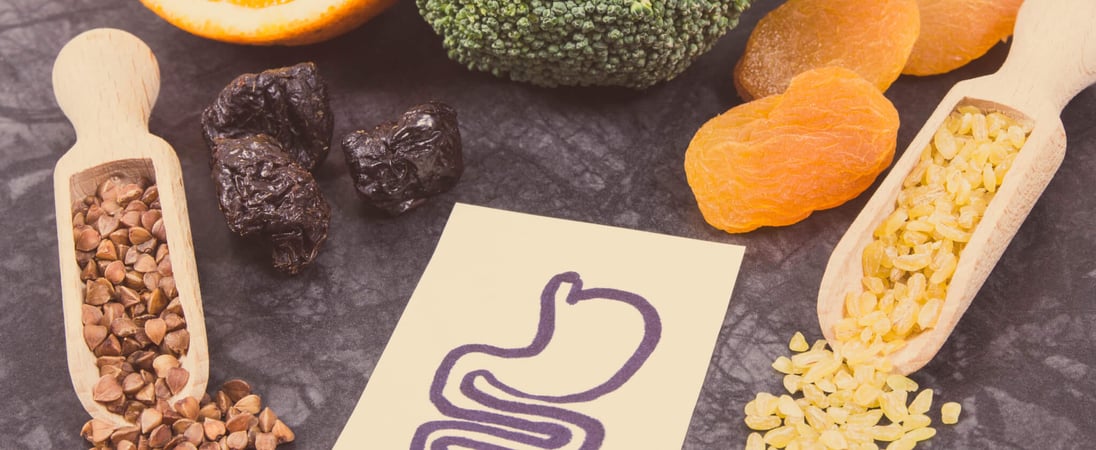
World Digestive Health Day
Maintaining a balanced diet and staying hydrated are key to ensuring optimal function and overall well-being.
Breaking down foods to allow the body to absorb nutrients, the digestive system in the human body is kind of amazing!
Not only does the gut impact nutrition, but it also relates to the immune system, mental health, and general well-being. Taking good care of yourself means being aware of the various foods and liquids that go into the body, and also learning how to treat the digestive system right!
World Digestive Health Day is here to act as a reminder of the important role that digestive health plays for the body and the entire person!
How to Celebrate World Digestive Health Day
Improve Your Digestive Health
The inner workings of the gut can be complicated and require a lot of balance. But even though the digestive system may be complicated, for most people in the western world there are a few simple things that can be done to make improvements.
Consider talking to your doctor about implementing some of these ideas in honor of World Digestive Health Day:
- Ingest Probiotics. An important factor in keeping the gut microbiome balanced is the existence of this good bacteria, which can be found in certain foods like yogurts, kimchi, kombucha, sauerkraut, and many others
- Drink Plenty of Water. Proper hydration is vital for the digestive system to be able to absorb nutrients properly
- Eat Fiber Rich Foods. Most adults need at least 25-30 grams of fiber per day, about 1/4 of which needs to be soluble fiber
- Get Enough Exercise and Rest. Many people don’t realize the impact that appropriate movement and sleep can make on the digestive system
Attend a World Digestive Health Day Event
Medical professionals can observe World Digestive Health Day by attending the various events, forums, webinars, continuous education and other learning opportunities that are scheduled in honor of the day. For a list of events, check out the WGO website.
Read Some Books on Digestive Health
In celebration of World Digestive Health Day, those who are interested in learning more can head to the library or a local bookstore and pick up a copy of one of these or other books on the topic:
- The Mind-Gut Connection by Emeran Mayer, MD
- Why Has Nobody Told Me This Before? by Dr. Julie Smith
- The Good Gut by Justin & Erica Sonnenburg, PhDs
- Gut: The Inside Story of Our Body’s Most Underrated Organ by Giulia Enders
History of World Digestive Health Day
World Digestive Health Day was founded in 2004 through the efforts of the folks at the World Gastroenterology Organization (WGO). The event was established in honor of the 45th anniversary of the creation of the WGO, which took place on May 29, 1958.
The idea behind the day is to increase knowledge and understanding about digestive health through this campaign, encouraging increased public awareness and providing more accessible information.
Each year, the sponsors and organizers of World Digestive Health Day provide a theme that helps to pinpoint a specific topic related to the observance of the day. Some of the themes of past events have included:
- Digestive Health: Make It a Priority (2024)
- Your Digestive Health: A Healthy Gut from the Start (2023)
- Colorectal Cancer Prevention: Getting Back on Track (2022)
- Gut Microbiome – A Global Perspective (2020)
World Digestive Health Day FAQs
What historical remedies were used to treat digestive issues?
Ancient Egyptians used herbal concoctions with mint and caraway to ease stomach discomfort.
In medieval Europe, people relied on ginger and fennel to treat bloating and indigestion. These remedies reflect early understanding of digestive health long before modern medicine.
Why is gut health often called the “second brain”?
The gut contains over 100 million neurons, interacting closely with the brain. This connection influences mood, immunity, and digestion.
Maintaining a healthy gut can significantly affect mental clarity and emotional well-being.
What surprising foods were historically considered digestion aids?
Pineapples, first introduced to Europe in the 15th century, were prized for their natural enzymes like bromelain.
Similarly, papaya was used in Central America for its ability to break down tough proteins. These fruits continue to be valued for their digestive benefits.
How do traditional festivals highlight the importance of digestive health?
In South Korea, kimchi is celebrated during annual food festivals for its probiotic properties.
Similarly, Italy’s olive harvest festivals often emphasize the benefits of olive oil for digestion. These traditions underline the cultural significance of dietary choices.
What unusual methods do animals use to aid digestion?
Cows regurgitate and re-chew their food to aid digestion, a process known as rumination.
Birds like owls regurgitate indigestible parts of their prey, such as bones, as pellets. These adaptations show nature’s ingenious ways of maintaining gut health.
Are there any digestive superstitions from around the world?
In some cultures, eating black-eyed peas on New Year’s Day is believed to bring good digestive health and prosperity.
In Russia, drinking pickle juice is thought to prevent digestive troubles after heavy meals. These beliefs combine tradition with health awareness.
How do astronauts maintain digestive health in space?
Astronauts eat specially designed meals that minimize gas production, as burping in microgravity can cause discomfort.
Fiber-rich foods are included to keep their digestive systems regular in the unique space environment. Maintaining gut health is crucial for long missions.
What’s the role of spices in improving digestion?
Turmeric has been used for centuries in Ayurvedic medicine to reduce inflammation in the gut.
Cumin seeds are a staple in Middle Eastern diets for relieving bloating and indigestion. Spices not only flavor meals but also enhance digestive processes.
Which historical figures focused on gut health?
Hippocrates, the father of medicine, famously said, “All disease begins in the gut.”
He prescribed simple, fiber-rich diets to his patients. His insights laid the foundation for understanding the connection between diet and health.
How do modern diets compare to ancient eating habits in promoting gut health?
Ancient diets were naturally high in fiber, with unprocessed grains, legumes, and vegetables.
Modern diets, often high in sugar and low in fiber, can disrupt gut microbiota. Revisiting ancient eating patterns might benefit digestive health today.
Also on ...
View all holidaysNational Alligator Day
In the swamps and wetlands of the American South, some ancient reptiles silently patrol the waters, showcasing nature's remarkable adaptability.
International Everest Day
Climb your own “Everest” by taking a hike or climb at a local hill. Want to do the real thing? Start training and researching so you can conquer that peak.
National Biscuit Day
In the US, they’re flaky bread rolls. In the UK, they’re sweet, crispy treats known as cookies in the US. Bake your own, and try different varieties and flavors.
National Paperclip Day
Paper clips can do everything from hold papers together (duh) to hang ornaments or scratch lottery tickets. Try some arts, crafts, and DIY using paper clips.
We think you may also like...
Global Omega-3 Day
Boost your well-being with the goodness found in certain foods, a health secret often linked to fish like salmon.








